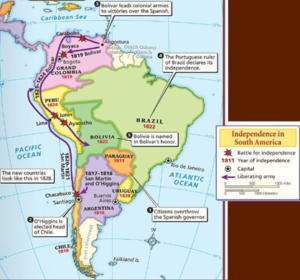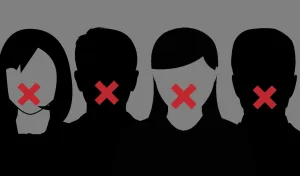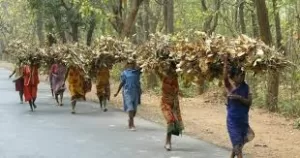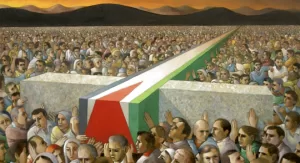200th Anniversary of the Decisive Battle of Carabobo
Arturo Rosales
Background
Thursday, June 24, will be the 200th anniversary of the Battle of Carabobo in which Simón Bolívar’s patriotic forces, outnumbered by the Royalists, won a resounding victory that effectively changed the course of history in South America. The events of that day terminated the 300 years of colonial dominance by Spain over what was then called the General Captaincy of Venezuela, a province of New Granada, which is modern-day Colombia and Ecuador.
Two years earlier, in 1819, Bolívar marched his army from Venezuelan Guyana (nowadays Bolívar State) through the plains and over the Andes mountains to confront the royalist armies at the Battle Boyacá, defeating them and going on to capture Bogotá three days later, on August 10, entering the city while being acclaimed as the Liberator.
With New Grenada now freed from Spanish rule, Bolivar returned to Angostura (modern-day Bolivar City) to plan the liberation of Venezuela. His master plan was to create the country of La Gran Colombia, uniting New Grenada, Quito, and Venezuela, which existed from 1821–1830 until its dissolution into Colombia, Ecuador, and Venezuela as we know the map today.
However, the victory at Carabobo did more than facilitate Bolívar’s dream of uniting New Grenada, Quito and Venezuela – it also acted as a catalyst for the liberation of all Spanish colonial territories in South America.
Quito, or Ecuador as we now know it, was liberated at the Battle of Pichincha – on the lower slopes of the volcano of the same name, on May 24, 1822.
The final battle took place on the high mountain plateau of Ayacucho, in Peru, on December 9, 1824 and finally ended Spanish colonial rule in South America after three centuries.

In summary, the patriotic armies of Bolívar and his main general, the Grand Marshal of Ayacucho, Antonio José de Sucre, liberated five countries from Spanish colonial rule – Venezuela, Colombia, Ecuador, Peru and Bolivia, which was formerly called Alto Peru.
But the strategic and military key to the defeat of the Spanish Empire in South America was the decisive Battle of Carabobo which allowed Bolívar’s armies to pass over frontiers to liberate the remaining Spanish controlled territories in the continent. A liberated Venezuela prevented any regrouping of royalist forces to retake major cities such as Valencia or even Caracas.
One analysis is that the Battle of Carabobo unleashed historical forces which led to the expulsion of the Spanish from their 300-year domination of the western part of South America. This was achieved through military strategy and the common people enlisting in Bolívar’s Army of Liberation and marching south, thousands of miles, to fulfill their historical mission.
Now, 200 years later, we can only wonder at the determination and desire for freedom and independence from Spanish domination of millions of people. Could it be that recent events sparked by the pandemic – a biological “deus ex machina” – are also propelling a repeat of historical forces to foment a second liberation of countries such as Ecuador, Colombia, Peru, and Chile from the neoliberal exploitation fostered by US neocolonial policies in what it has always regarded as its ‘backyard’?
Historical impact of Bolívar
As the Liberator of five countries in South America, Bolívar had a determinant impact on historical events that reshaped the continent and led to the emergence of new nation states leaving behind the Spanish Vice Royalties of Peru and New Grenada.
In his 1941 poem, Canto para Bolívar, Chilean poet Pablo Neruda portrays the name and achievements of Bolívar as being passed down, generation to generation so as to inspire people and nations to fight for their independence and freedom from despotism – just as Bolívar did during more than 15 years of military campaigns.
“Bolivar reawakens every 100 years, when the people awakens.”, notes Neruda as the masses take to the streets to defend their rights.
Even today, a popular chant in the streets is……..
Alerta, altera, altera que camina
La espada de Bolívar por América Latina
[Alert, beware that Bolívar’s sword walks through Latin America]
… as the Bolivarian Revolution began to unfold and establish itself in Venezuela some 24 years ago under the leadership of the late President Chávez.
Countries in Turmoil
Look at events in neoliberal regimes such as Chile, where students have been on the street for at least four years demanding free education and the ditching of privatizations in terms of health care as well. The oppressed Mapuche Indians are demanding their rights as the original people of that region. Then, with the pandemic revealing the shortcomings of the privatized system in that country, the right-wing President Piñero, finally has had to agree to a Constituent Assembly and referendum to allow the people to have a voice and not just run the country for the well-heeled and oligarch classes. It should be noted that the spark that lit the bonfire in Chile was a fare increase on the Santiago metro system.
In Peru, leftist schoolteacher Pablo Castillo won the popular vote against Keiko Fujimori by a razor thin margin but the right wing that has always controlled Peru since 1980, when Alvarado was president, are desperate to keep Castillo at bay. The ruling classes are willing to risk political destabilization, a coup or even a civil war to protect their corrupt lifestyles.
In Colombia, people have been in the street since April 28, demanding the derogation of a new tax law that would have hit the 43% of poor in the country and this was transformed into a general strike with leaders demanding reforms to restore some quality of life to the masses. Students want free higher education with no cost, but last week the right wing dominated Colombian Congress kicked out the zero-matriculation proposal. Police violence, killings, disappeared, rapes, and sexual violence carried out by the security forces are all fanning the flames of revolution In Colombia.
In Ecuador, Lasso won the presidency as a right wing, neoliberal banker but there is something odd even though no-one has screamed “fraud”. Lasso’s party has only 9% of the 137 seats in Ecuador’s congress. We have heard of tactical voting, but this is far and away one of the most unbelievable results in Ecuador’s democratic history.
In Bolivia, after the November 2019 Añez coup d’état, fresh elections restored Evo Morales’ Movement to Socialism (MAS) back to power with 55% of the vote. This has led to coup leaders facing justice after the killings that took place with neither the OAS nor the High Commissioner for Human Rights of the UN, Michelle Bachelet, condemning the violence.
The turmoil in the aforementioned countries is in sharp contrast to the peaceful situation in Venezuela. But why are all these countries facing unrest at the same time? Is it because of the common thread neoliberal policies imposed by successive governments that ground down the populations who are now rising up? Is it that history from over two hundred years ago is repeating itself, inspired by the reawakening of Bolivarianism and what the Liberator represented in the collective memory of the people? Is it a coincidental geo-historical and geo-political phenomenon driven by what Carl Jung called synchronicity?
Since there is not one single answer to such complex questions, suffice it to say that the spirit of Bolívar and the 200th anniversary of the catalytical Battle of Carabobo are driving a similar paradigm as during the South American independence wars.
Role of Venezuela
As it was two centuries ago, Venezuela today is the epicenter of a revolutionary movement that wants to establish a different political paradigm for Latin America; a paradigm with an autochthonous ideology with historical and cultural elements, not only repeating the past, but also adding new elements and experiences from the global context of our era. Chávez called this new paradigm Socialism of the 21st Century.
The continent wide revolution Chavez sought twenty years ago found its path via the Atlantic–Caracas-Brasilia-Montevideo-Buenos Aires. Now, in 2021, the former historical route via the Pacific is reemerging – Caracas-Bogotá-Quito-Lima-Santiago.
Both historical and tectonic shifts take time to build up and “explode”. Yet there is clear evidence that changes are welling up as the anniversary of the Battle of Carabobo beckons, The peoples of the world’s most unequal continent, South America, seek to establish a better and brighter future for their offspring and coming generations.
Celebrating the Battle of Carabobo in Venezuela
Various monuments have been constructed ready for the anniversary and ten tourist buses are waiting to take people on a guided tour of the monuments and the battlefield itself.
Caracas is being smartened up in anticipation of the victory parade led by Bolívar himself that will reenact his triumphant entrance into Caracas on June 29 after this key victory for Venezuela and South America.
There is still a long way to go to give many poor in South America decent lives and defeat the poverty imposed by the rich and imperialist classes who have benefited from the neoliberalism of the 1990’s.
Just recall that the explosion in Venezuela happened on February 27, 1989 – the Caracazo – and Chávez came to power ten years later. Perseverance, patience, unity, struggle, battle, and victory by the peoples of this continent are the key and just as plate tectonics move slowly, so do the forces that drive revolutions to emerge, since, as Fidel once said: “History tells us that a defeated revolution must pay the victors in blood.”
The conclusion to this process is not yet ready to be written.
(Arturo Rosales is a seasoned journalist who has worked in several Latin American countries. Article courtesy: Axis of Logic, a website that seeks to promote peace, equality, human rights and the right to self determination for all nations throughout the world.)
❈ ❈ ❈
Manifesto of the Bicentennial of the Battle of Carabobo
“The Freedom of the New World is the Hope of the Universe.”
– Simón Bolívar
[Progressive organizations and social movements from various countries participated in the Bicentennial Congress of the Peoples of the World to promote a platform of anti-imperialist struggle from Venezuela. The convention was held in Caracas, Venezuela from June 21 to 21, as part of the commemorative program in honor of the 200th anniversary of the Battle of Carabobo.
More than 600 delegates from several countries attended the meeting. They debated the strategies of the struggle of progressive forces, unity, and other issues of common interest for the peoples. On the concluding day, the declaration given below was adopted by the Peoples’ Congress.]
Final Declaration of the Bicentennial Congress of the Peoples of the World
Capitalism is experiencing a systemic and multidimensional crisis. Humanity is suffering the economic consequences of this crisis and especially, its effects on people with less purchasing power. The COVID-19 pandemic has enhanced the crisis, increased social problems, and displayed the injustices of the neoliberal dogma. Policies to counter COVID-19, implemented by governments that defend neoliberal capitalism, have placed humanity in danger.
The management of the global health crisis within neoliberalism’s prevailing framework and its rationality based on capital accumulation has deepened inequalities, expanded poverty, and increased unemployment; evictions and social exclusion have worsened. The speculative voracity of Western pharmaceutical corporations, coupled with the prevailing struggle between world powers for the production and acquisition of COVID-19 vaccines, has reaffirmed the inhuman character of the capitalist mode of production, the decline of the Western civilizational model, and the ethical collapse of a system of domination articulated in terms of profit maximization.
US hegemony is in decline. Its ruling classes and elites are deeply fractured. Its economy is suffering a severe depression while losing key markets. US military interventions in Asia have failed; the European Union is distancing itself from some of its policies and, furthermore, the US now faces the political-military challenge of the emerging world powers.
Neoliberal globalization has become the strategic bet of the US to preserve its domination. Imposing its economic model is imperative for the defeat of its adversaries. The ”Provisional National Security Strategic Guidance” explains the hegemonic intent of the Biden administration. Humanity is already suffering from the actions of the White House that have been deployed in the economic sphere, in the dispute over geostrategic areas, the control of technologies such as 5G, in military attacks, in various aggressions aimed at maintaining its supremacy and in the reinforcement of NATO.
The strategizing of NATO, the military arm of neoliberal globalization, is a danger to peace since it violates the sovereignty of nations, perpetrates armed aggressions against people and creates conditions for a confrontation that potentially carries nuclear risk. Its prospect of expansion beyond the North Atlantic, towards Eastern Europe and Latin America, as well as the encirclement of Russia and China denotes a danger to the entire world.
Currently, dispossessing other nations of their territories shows its determination to seize and control, by any means, the essential minerals for new technologies, sources of water, energy and biodiversity. The dispute over these common goods marks the present international order and is a motive for the neocolonial campaigns of the great powers. Without a doubt, imperialism is the main threat to humanity. Its policies are extremely destructive for Mother Earth, threatening life, stimulating hatred, undermining peace and suppressing the self-determination of nations.
Its model is built on the exploitation of the working class, the domination of native peoples, a patriarchy that perpetuates the subjugation of women, the tolerance of child and adolescent slavery, the reaffirmation of the feminization and racialization of poverty that derive from supremacist conceptions that injure human dignity. The contempt for sexual diversity, people with disabilities and the segregation of poor migrants are examples of a model that denies human dignity. The powerful try to ”naturalize” this order and castrate human creativity through their media corporations and social media networks. The cultural industry of capitalism insists on shaping collective imagination and imposing its rationality. It involves multiple forms of control, diverse power relations and varied legitimizing mechanisms that uphold an unjust world order.
In Our America [Nuestra América], a region plagued by US Southern Command military bases, a momentous geopolitical battle is taking place. The Bolivarian ideology sparked a wave of changes aimed towards a second independence of the peoples of Latin America and the Caribbean. The White House has revamped its Monroe Doctrine to colonize the continent once again. The shipping channels, Antarctica, the Amazon, oil, biodiversity, gas, water, and other natural resources are the strategic objectives that animate US strategy. It is an orchestrated plan of looting that impacts our cultures as well, through theft of ancestral knowledge, privatization of the genetics of ancient peoples, and a collective erasing of memory.
The update of the Monroe Doctrine is part of a global plan that is expanding throughout the world. Transnationals, mercenaries and secret service agencies are tearing Africa apart. Western ships are taking over Oceania. A gigantic arc of tensions and conflicts runs from the Arctic to the Kamchatka Peninsula, passing through the Hindu Kush and the Himalayas. They are trying to Balkanize Eurasia, exterminate Syria and Palestine, prevent the recovery of the sovereignty of the Sahrawi Arab Democratic Republic, defeat Iran, enslave the Indian Ocean, humiliate Vietnam and the Democratic People’s Republic of Korea, chain the Philippines, remilitarize Japan. All of this is a plan to impose American supremacy, without considering the wishes of the majorities of the world.
Humanity demands an alternative to the destruction of our planet, to capitalistic exploitation and the social injustices of the current order. Our America joins this clamor, where the historical massive mobilizations of the peoples of Chile, Haiti, Colombia and Brazil stand out. This, coupled with the return of the Movement towards Socialism to the Casa Grande del Pueblo of Bolivia in 2020, as well as the recent political-electoral triumphs in Chile, Peru and Mexico, all point towards a new and hopeful situation for the continent. A new world germinates in the resistance of West Asia and in the changes promoted by the popular forces and the revolutionary or progressive governments of Our America. The exercise of a sovereign foreign policy of the emerging powers and their solidarity with other peoples is a a key element in the organization of a new age.
The world is moving towards a new direction. Humanity fights to protect its diverse world views, cries out for its cultural diversity to converge in a new world order where other worlds become possible but the current one will be impossible. The liberation of the peoples is subject to the possibility of building a new world order characterized by a rainbow of sovereign nations and social projects based on justice and solidarity. The current reality demands an understanding of the diversity of struggles in a decided commitment to new models of human coexistence. Emancipation must also be the making of new worlds. The future demands from us the preservation of life.
The Bicentennial Congress of the Peoples of the World is inspired by this dream. It is a collective effort based on life. It is a stake against colonialism that is still powerful, and it accompanies the struggles of the peoples for their sovereignty. This Congress bases its hope for the future on the historical memory of nations and calls for unity in the face of imperialism. Uniting our peoples cannot be postponed in the face neoliberal globalization. It is essential for us to transcend solidarity and to develop a committed internationalism capable of coordinating our struggles, retaking the initiative of a peoples-based agenda and changing the correlation of forces in the favor of the peoples of the world.
Two hundred years after the Battle of Carabobo, we continue on the course charted by the Liberator Simón Bolívar, to strive for the ”greatest amount of happiness possible” for our peoples. A more just world where there is no lack of food, freedom, health and joy, today requires fighting for the self-determination of the peoples and assuming internationalism as an inalienable duty. That world was dreamed by Commander Hugo Chávez and this Congress is committed to work to make it come true.
With this in mind, the Bicentennial Congress of the Peoples of the World declares that:
- We support all initiatives to eliminate COVID-19 vaccines patents, boost vaccine production and distribution from a rationality centered on the preservation of life and consequently of progress towards achieving a global vaccination plan with solidarity, equity and social justice.
- We condemn unilateral coercive measures and other criminal aggressions perpetrated against the Bolivarian Republic of Venezuela, Cuba, Nicaragua, Mozambique, Zimbabwe, Iran, Russia, Syria, Palestine, Yemen, the Democratic People’s Republic of Korea, the People’s Republic of China and other nations of the world.
- We express our solidarity with the right of self-determination of Western Sahara, the last colony in continental Africa, subjected to a war imposed by Morocco. We recognize their legitimate struggle for the full recognition of the Sahrawi Arab Democratic Republic.
- We denounce the proliferation of US military bases in Latin America and the Caribbean as well as US military deployment in the region, since this constitutes an attack on the peace and self-determination of the peoples of the region.
- We support the just demand of Argentina regarding its sovereign right over the territories of the Malvinas Islands.
- We demand that US imperialism ceases its aggressions against Venezuela and that it returns the usurped wealth of the Bolivarian Republic of Venezuela to the Venezuelan people.
- We condemn neocolonial initiatives that harm the sovereignty of the peoples of Africa.
- We express our solidarity with the people of Puerto Rico, Galicia, the Basque Country, Catalonia and the Canary Islands in their legitimate struggles for self-determination.
- We call on the citizens of the world to join forces to fight to preserve life, safeguard peace, defend the sovereignty of the peoples and build new models of human coexistence through the development of an AGENDA 2021-2030 of the peoples of the world.
Likewise, the Bicentennial Congress of the Peoples of the World agrees:
- To seek development based on the geographical and specific characteristics of each region, a political-ideological training system that articulates the different experiences conceived by the political and social organizations participating in this Congress.
- To Articulate the different communication efforts of political parties, social movements and other popular organizations for the production and dissemination of media content on the Hugo Chávez International Communication Platform.
- To Constitute delegations of communicators by sector and by the participating nations of the Bicentennial Congress for their incorporation as students in the plans of the International University of Communication.
- To Create and / or strengthen the organizational structures and other mechanisms of articulation approved in the discussion roundtables by the political parties and social movements attending the Bicentennial Congress, in order to comply with the combat agendas adopted in said roundtables and to implement the decisions reached in the plenary session of this Congress.
- To establish a center for strategic thought, constituted by the political parties and social organizations attending this Congress, capable of constructing a subjectivity in accordance with the liberation of the peoples of the world and the emancipation of the human condition.
This has been approved in the city of Caracas, cradle of the Liberator Simón Bolívar and capital of the Bolivarian Republic of Venezuela, on June 23, 2021.
(Manifesto courtesy: Orinoco Tribune.)




